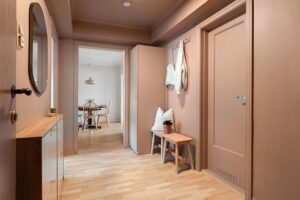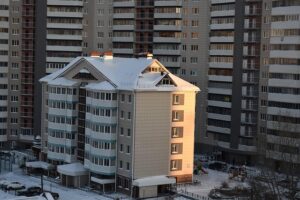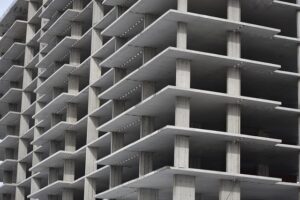Maximizing Your Financing: A Guide to HDB Executive Condo (EC) Purchases
Considering an HDB Executive Condo (EC) in Singapore? It's a unique housing type that blends features of both condominiums and public housing. To qualify for an EC, you must meet the income and housing criteria set by the Housing & Development Board …….

Considering an HDB Executive Condo (EC) in Singapore? It's a unique housing type that blends features of both condominiums and public housing. To qualify for an EC, you must meet the income and housing criteria set by the Housing & Development Board (HDB). As an EC resident, you'll enjoy modern amenities and shared facilities, but also bear additional costs such as ABSD, maintenance fees, and property taxes after the Minimum Occupation Period (MOP). Financial planning for an EC is complex; it involves navigating market cycles, understanding your income and debt servicing ratios, leveraging government grants like CHG or SHG, and considering mortgage restructuring to align with your long-term financial goals. The CIC scheme allows extended family members to jointly apply, enhancing purchasing power, while strategic timing can minimize financing costs and maximize capital appreciation potential. It's crucial to account for all financial commitments associated with an EC, including recurring expenses during and after the MOP, to ensure a sustainable and beneficial investment.
navigating the financial landscape of purchasing a HDB Executive Condominium (EC) can be a complex journey, but with the right guidance and understanding of the available options, it’s a milestone within reach. This article delves into the intricacies of EC financing, equipping buyers with essential tips to secure their dream home. From deciphering eligibility criteria to exploring CPF Housing Grants, we’ll cover every aspect of financial planning for prospective EC owners. We’ll also examine how to assess your financial health before applying for an EC loan, compare various bank mortgages, and consider the role of family support in funding. Additionally, we’ll explore creative financing strategies, discuss market timing, and highlight additional costs to expect as an EC owner. Whether you’re a first-time homebuyer or looking to upgrade, this comprehensive guide will help you navigate the financial hurdles towards owning your HDB Executive Condominium.
- Understanding HDB Executive Condominium (EC) Financing Options
- Eligibility Criteria for EC Home Buyers
- CPF Housing Grants for Prospective EC Owners
- Assessing Your Financial Health Before Applying for an EC Loan
- Comparing Bank Mortgages: Fixed, Floating, and Beyond for ECs
- The Role of Family Support in Funding Your HDB Executive Condo
- Creative Financing Strategies for EC Purchases
- Timing Your EC Purchase: Market Considerations and Financial Planning
- Navigating Additional Costs and Fees Associated with Owning an EC
Understanding HDB Executive Condominium (EC) Financing Options

When considering the purchase of an HDB Executive Condominium (EC), understanding the financing options available is crucial for prospective buyers. The Housing & Development Board (HDB) offers ECs as a hybrid housing solution for couples and families, which are a blend of public and private housing. These units provide the benefits of both types of housing, including subsidies for lower-to-middle-income families and the potential to upgrade to a resale flat after fulfilling certain conditions. When it comes to financing an EC, buyers have several options. The first is the HDB Loan Eligibility Scheme, which allows eligible first-time applicants to apply for a loan from the HDB to finance the purchase of new EC units. This scheme has favorable loan terms and interest rates, making it an attractive option for many.
In addition to the HDB Loan, buyers can also explore bank loans or a combination of both HDB’s and a bank’s loan under the “Mortgage Service” scheme. This approach allows for more flexibility in managing monthly repayments, as it divides the loan amount between HDB and the bank, with HDB financing up to 75% to 80% of the purchase price or value of the EC, whichever is lower. The remaining percentage can be financed through a bank loan. Prospective EC buyers should carefully assess their financial situation and eligibility criteria for each financing option to make an informed decision that aligns with their long-term financial planning. It’s advisable to consult with a financial advisor or HDB officer to fully understand the implications of each financing option and to navigate the home buying process smoothly.
Eligibility Criteria for EC Home Buyers

For individuals aspiring to purchase an HDB Executive Condominium (EC), understanding the eligibility criteria is paramount. Prospective buyers must be Singaporean citizens, with at least one applicant meeting this requirement. Additionally, applicants must fulfill the five-year Median Income (MI) requirement before and after booking an EC unit. This ensures financial stability and aligns with the housing policies designed to cater to the needs of middle-income families. Moreover, applicants are not allowed to own any residential property locally at the time of application. This includes HDB flats, DBSS (Design, Build and Sell Scheme) flats, and private properties. Also, they cannot have submitted multiple applications for ECs or have existing housing loan(s) from any bank. These stringent criteria are in place to ensure that the benefits of purchasing an HDB EC are reserved for those who need it most, without compromising on the quality and sustainability of the living environment. Prospective buyers should carefully assess their eligibility against these criteria before committing to the application process for an HDB EC, as this will greatly enhance their chances of successful approval and homeownership.
CPF Housing Grants for Prospective EC Owners

When considering the purchase of an Executive Condominium (EC) in Singapore, prospective owners should explore the CPF Housing Grant scheme as it offers significant financial assistance. The Housing and Development Board (HDB) provides these grants to help eligible first-timer families with their home purchases. For instance, the grant can cover a portion of the purchase price of an HDB EC, making it more affordable for singles, couples, or families looking to upgrade from a public flat to an EC. To be considered for these grants, applicants must meet the eligibility criteria set by the CPF Board and HDB, which include income ceilings and occupation rules. It’s advisable to thoroughly review the grant categories, such as the Fixed Grant Component and Proximity Grant Component, to determine the level of assistance for which one may be eligible. These grants not only ease the financial burden but also contribute to the stability and prosperity of one’s home-owning journey in Singapore. Prospective EC owners are encouraged to utilize these resources effectively by understanding the terms and conditions associated with the CPF Housing Grants, ensuring a smoother path towards homeownership within an HDB Executive Condo.
Assessing Your Financial Health Before Applying for an EC Loan

When considering the purchase of an HDB Executive Condominium (EC), it’s crucial to thoroughly assess your financial health before applying for a loan. Prospective buyers should begin by evaluating their current income, expenses, and savings to gauge their affordability and comfort with the mortgage repayments. This due diligence extends to understanding the total debt servicing ratio (TDSR) framework set by the Monetary Authority of Singapore (MAS), which ensures that monthly housing loans do not exceed a certain percentage of a borrower’s income. Additionally, potential buyers must consider both the short-term and long-term financial implications of owning an EC, including future maintenance fees and the potential increase in mortgage payments if interest rates rise.
Moreover, it’s advisable to review your credit score and financial history, as these factors can influence the loan terms offered by financial institutions. A good credit score can lead to more favorable loan conditions, which is a significant advantage when securing an EC loan. Prospective buyers should also factor in other financial commitments, such as existing loans or outstanding payments, to ensure they do not overextend themselves financially. By taking a measured approach to assess financial health, buyers can make informed decisions and select an HDB Executive Condo that aligns with their long-term financial goals. This careful planning is key to securing an EC loan that suits your lifestyle without compromising your financial stability.
Comparing Bank Mortgages: Fixed, Floating, and Beyond for ECs

When exploring financing options for purchasing an HDB Executive Condominium (EC), understanding the nuances between different types of mortgages is crucial. Prospective EC buyers must weigh their options carefully, as the type of mortgage can significantly impact their financial commitments over the loan period.
Fixed-rate mortgages offer predictability, with interest rates set for a predetermined period, providing homeowners with stability in their monthly payments. This can be particularly advantageous for those who prefer budgeting certainty and are not as concerned with potential savings from floating rates should interest rates drop. On the other hand, floating or variable-rate mortgages allow borrowers to benefit from lower interest rates when they fall; however, this comes with the risk of rates increasing in the future, potentially leading to higher monthly installments.
Beyond the traditional fixed and floating rate options, buyers should also consider EC-tailored financing packages that may offer unique benefits or favorable terms. Some banks may present special loan packages designed specifically for ECs, which could include features like lower initial interest rates or flexible repayment structures. These innovative solutions can provide a middle ground for those who seek the stability of a fixed rate with some of the flexibility offered by floating rates. As such, EC buyers should conduct thorough research and compare these financing options to make an informed decision that aligns with their long-term financial goals and personal preferences.
The Role of Family Support in Funding Your HDB Executive Condo

Creative Financing Strategies for EC Purchases

When considering the purchase of an HDB Executive Condo (EC), buyers often explore creative financing strategies to navigate the property market effectively. One such strategy is leveraging the Combined Income Ceiling (CIC) scheme, which allows extended family members to jointly apply for an EC loan. This can increase the financial capacity of the applicants, making it easier to meet the loan-to-value (LTV) requirements set by financial institutions. Another tactic involves opting for a flexible mortgage plan that offers lower interest rates at the onset, with the option to switch to a fixed rate later, thereby securing financial predictability against inflation and market volatility. Additionally, understanding the various grants available, such as the CPF Housing Grant (CHG) or the Special Housing Grant (SHG), can significantly reduce the upfront costs associated with purchasing an EC. Prospective buyers should also consider the resale levy waiver for those who are upgrading from a new flat to an EC, which can provide substantial savings. These financial planning steps, coupled with a clear understanding of the Total Debt Servicing Ratio (TDSR) and Mortgage Servicing Ratio (MSR) frameworks, will equip buyers with the necessary tools to navigate the complex landscape of EC financing. By carefully considering these strategies and staying informed about the latest housing grants and financial product offerings, buyers can make informed decisions that align with their long-term financial goals and aspirations for their new HDB Executive Condo.
Timing Your EC Purchase: Market Considerations and Financial Planning

When considering the purchase of an HDB Executive Condominium (EC), timing your investment is pivotal, influenced by both market dynamics and personal financial planning. Real estate cycles in Singapore are characterized by periods of growth, stability, and decline; understanding these patterns can significantly impact your investment’s potential for capital appreciation. For instance, purchasing during a period of low interest rates can reduce the cost of financing and increase the affordability of your EC. Additionally, the timing of your purchase relative to government grant eligibility—such as the CPF Housing Grant—can also yield substantial savings.
Financial planning for an HDB EC requires careful consideration of your long-term financial goals and the associated costs. Beyond the initial down payment, potential buyers must account for additional costs like legal fees, stamp duties, maintenance fees, and mortgage servicing. To optimize your financial commitment, it’s advisable to maintain a healthy savings buffer and to ensure that your monthly income can comfortably absorb these expenses without overextending your finances. Leveraging tools such as mortgage restructuring plans and financial advisory services can further assist in aligning your purchase with your financial strategy, ensuring that the timing of your EC acquisition is both opportune and sustainable within your fiscal landscape.
Navigating Additional Costs and Fees Associated with Owning an EC

When considering the purchase of an HDB Executive Condo (EC), prospective buyers must be cognizant of the additional costs and fees that extend beyond the initial outlay for the unit itself. These include a variety of recurring and one-off expenses that can impact the overall cost of ownership. The Additional Buyer’s Stamp Duty (ABSD) is a significant financial consideration for EC buyers, especially in light of the updated regulations that vary according to the number of property owners. First-time EC applicants are subject to a lower ABSD rate compared to second-timer applicants. Furthermore, potential buyers should factor in the monthly mortgage payments, which will form a substantial portion of your expenses. The interest rates on housing loans can affect the total amount payable over the loan tenure.
Moreover, maintenance fees for the common areas within the EC development are a recurring cost that must be budgeted for annually. These fees ensure the upkeep and cleanliness of shared facilities, contributing to a harmonious living environment within the EC community. Additionally, property taxes will apply once the Minimum Occupation Period (MOP) has lapsed, which is after five years from the date the keys are collected. Prospective buyers should also be aware of sinking fund contributions that are set aside for future major repairs and renovations of shared facilities within the EC development. These financial considerations are integral to the long-term planning and budgeting for owning an HDB Executive Condo, ensuring a comprehensive understanding of the full spectrum of associated costs.
When venturing into the realm of HDB Executive Condominium (EC) ownership, prudent financial planning is paramount. This article has delved into the multifaceted aspects of EC financing, equipping prospective buyers with a comprehensive understanding of their options. From eligibility criteria and available grants to the intricacies of assessing personal financial health and comparing mortgage types, each step has been outlined to ensure a well-informed decision. Additionally, the importance of family support and creative financing strategies has been highlighted as valuable tools in securing your HDB EC. Buyers must also consider market conditions and additional costs when timing their purchase and beyond. By taking these factors into account, you can navigate the HDB Executive Condominium financial landscape with greater confidence. Remember to carefully evaluate all available resources and support systems to facilitate a smooth and successful home-buying experience in this dynamic housing market.







